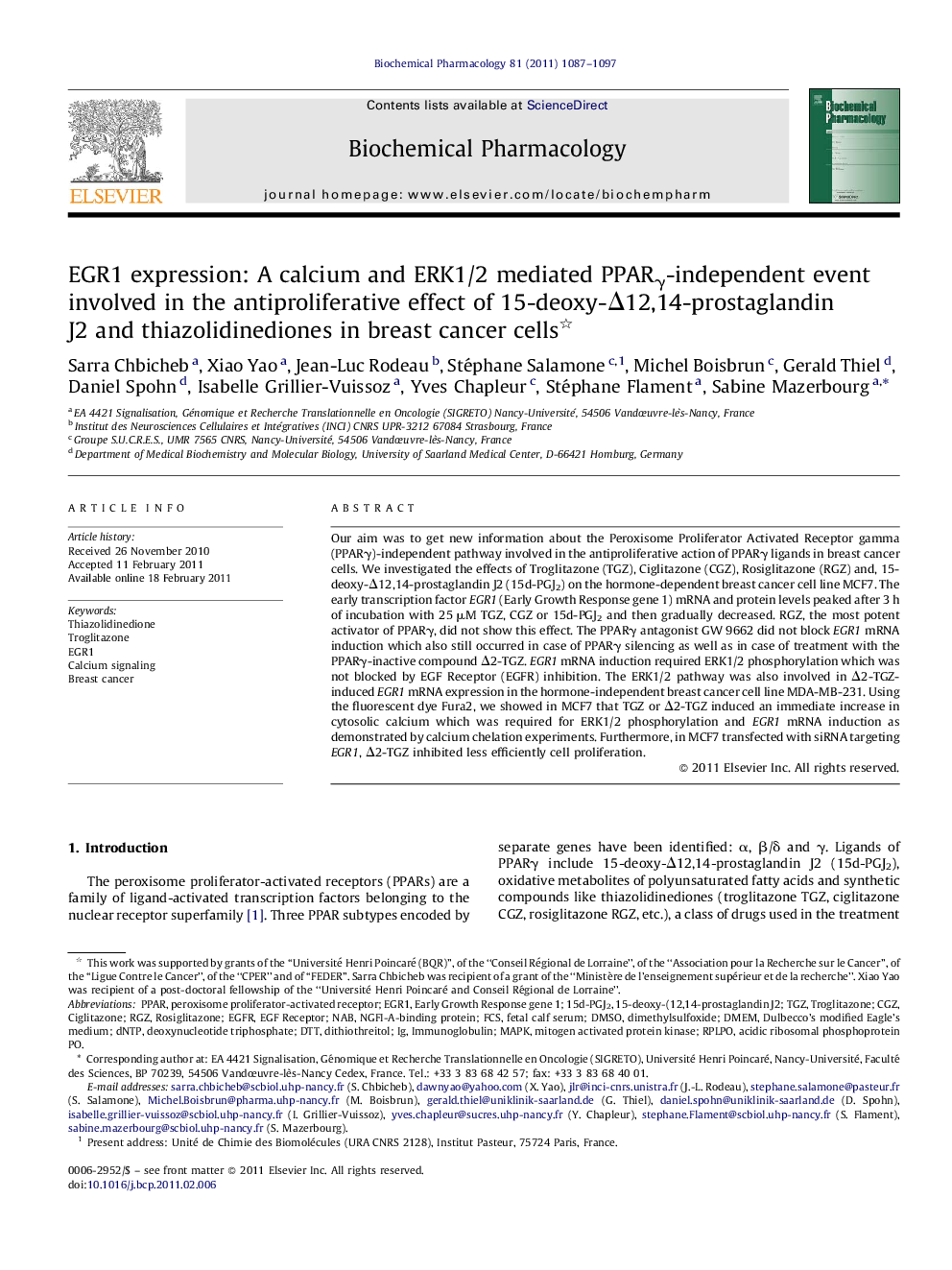| Article ID | Journal | Published Year | Pages | File Type |
|---|---|---|---|---|
| 2514039 | Biochemical Pharmacology | 2011 | 11 Pages |
Our aim was to get new information about the Peroxisome Proliferator Activated Receptor gamma (PPARγ)-independent pathway involved in the antiproliferative action of PPARγ ligands in breast cancer cells. We investigated the effects of Troglitazone (TGZ), Ciglitazone (CGZ), Rosiglitazone (RGZ) and, 15-deoxy-Δ12,14-prostaglandin J2 (15d-PGJ2) on the hormone-dependent breast cancer cell line MCF7. The early transcription factor EGR1 (Early Growth Response gene 1) mRNA and protein levels peaked after 3 h of incubation with 25 μM TGZ, CGZ or 15d-PGJ2 and then gradually decreased. RGZ, the most potent activator of PPARγ, did not show this effect. The PPARγ antagonist GW 9662 did not block EGR1 mRNA induction which also still occurred in case of PPARγ silencing as well as in case of treatment with the PPARγ-inactive compound Δ2-TGZ. EGR1 mRNA induction required ERK1/2 phosphorylation which was not blocked by EGF Receptor (EGFR) inhibition. The ERK1/2 pathway was also involved in Δ2-TGZ-induced EGR1 mRNA expression in the hormone-independent breast cancer cell line MDA-MB-231. Using the fluorescent dye Fura2, we showed in MCF7 that TGZ or Δ2-TGZ induced an immediate increase in cytosolic calcium which was required for ERK1/2 phosphorylation and EGR1 mRNA induction as demonstrated by calcium chelation experiments. Furthermore, in MCF7 transfected with siRNA targeting EGR1, Δ2-TGZ inhibited less efficiently cell proliferation.
Graphical abstractTroglitazone (TGZ) and Δ2-TGZ induce an increase in cytosolic calcium leading to ERK1/2 phosphorylation and EGR1 expression in breast cancer cells, leading to growth inhibition. This event is independent of PPARγ and EGFR activation.Figure optionsDownload full-size imageDownload as PowerPoint slide
